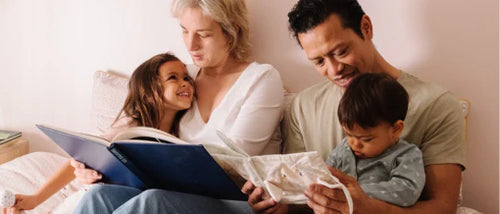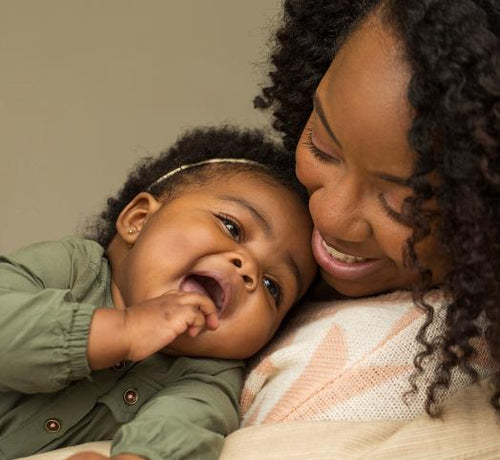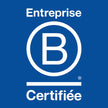During the first year, your baby opens up to the world at an incredible speed. Long before he can speak, he communicates with you in a thousand and one ways!
The exchanges you have with him allow the harmonious development of his personality and define your place as a parent. Discover these very first exchanges with us and learn to interpret their behavior to better meet their needs!
NEWBORN MODES OF COMMUNICATION The first exchanges between you and your baby take place well before birth: his sensory abilities in utero already allow him to feel your caresses, hear your voice and feel your presence. When he comes into the world, he uses all the means at his disposal to get in touch with you:
• The look Coming from elsewhere, the very first look of your baby at birth fixes you and transfixes you, it provokes in you an emotion that makes you a mother - or a father. It embodies the meeting with the real baby, necessarily different from the baby you imagined during pregnancy. This very special look also reflects your baby's antenatal experience. It allows him to get to know those who gave him all his well-being for 9 months.
Subsequently, your baby's gaze will be the mirror of his emotional state and his stage of development, whatever his age. Over time, the deeper and deeper intimacy between you will allow you to decipher each of his looks in the blink of an eye.
• Touch At birth, the need for physical contact is as crucial for your baby as that of eating or sleeping. He needs your arms to become aware of his body, to soothe himself, to warm himself, to feel protected in case of distress. Physical proximity, skin to skin, body to body, sleeping in your room for the first few months, will help him adapt to this new world and become more independent later.
• Voice and sounds From the moment your baby is born, your voice reassures and humanizes him.
In addition to the essential touch of your arms, your words or gentle songs help to soothe him when he is in distress. Very quickly, your baby will also try to produce sounds to communicate with you: at 2 months, he will gurgle with pleasure with "uh, uh", "aeu", "areu" to respond to you or call out to you, At 4 months he vocalizes, at 6 months he modulates sounds and around 8 months, he will say "pa-pa" or "ma-ma". Finally, around the age of 1, he will start talking and pronouncing his first words.
• The language of crying At birth and during the first months, crying is the only way for your baby to express a need, a difficulty, or discomfort. A baby never cries for nothing or on purpose, he calls for help when he is unable to cope on his own. However, he does not always suffer when he cries: you will quickly learn to spot intense, high-pitched cries of pain. After a few months, you will also know how to differentiate hunger cries from cries of falling asleep, agitation, discomfort, etc.
Around 6 to 8 months, you will see separation tears appear in the evening or when he is alone, and around 1 year of age, frustration cries and small tantrums. Responding without counting the first months is the only way to calm and reassure him before he is able to do without you: avoid as much as possible letting your baby cry alone away from you.
• Expressions of well-being During moments of exchange with you, your baby will very quickly reward you with different expressions which are a real mode of communication for him. Facial expressions, and in particular smiles, first appear during sleep when memorizing your exchanges, then address you during moments of calm awakening, around 1 month. At 4 months, baby will laugh out loud to show his joy and well-being.
From birth, your baby may also have harmonious movements of his arms and hands which reflect his well-being. Around 2 months, he gestures with his arms as soon as he is happy, then with his feet around 3 months. As he develops, new gestures and attitudes will allow him to be understood more and more precisely before really speaking.
ENCOURAGE EXCHANGES WITH YOUR BABY • Your baby is totally dependent on you. The more you respond to his requests during his first months, particularly through feedings or bottles and by taking him in your arms, the more you will give him the emotional security that will allow him to face difficulties and become independent.
• You need to be available to watch, hear and understand your baby. His behavior is an exact reflection of what he feels inside. Their reactions will guide you in your answers.
• Also try to speak “truly” to your baby, that is to say not to lie to him and to speak to him normally, without using “baby” language.
• If you lack conviction, he will not be fooled. A baby feels if we are there for him, he needs to be able to count on you. He understands through your intonation whether you have good or bad intention long before understanding the exact meaning of the words.
• Be positive because to grow and flourish, your baby needs his father and mother to be amazed by his progress, even the smallest. Encourage him to give him self-confidence, applaud him at each stage of his development: when he smiles, when he starts to play, when he walks, when he points, etc.
By promoting their successes, you will help them forget and overcome their difficulties and clumsiness.




